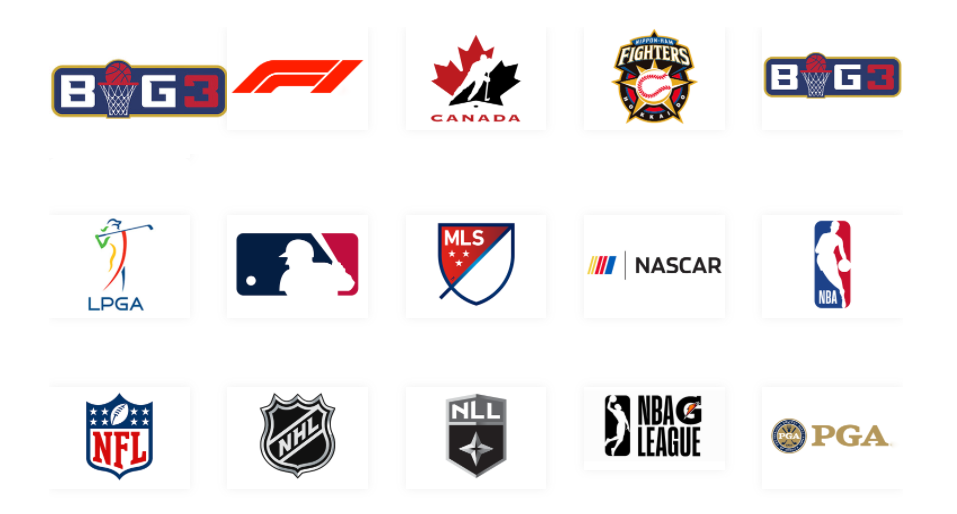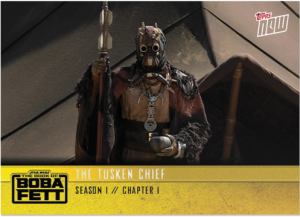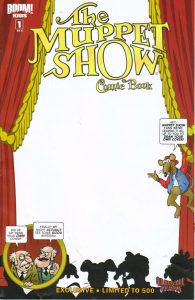Last August, the sports card market was rocked when Fanatics, a multi-billion dollar sports memorabilia company, announced an exclusive agreement to make sports cards with Major League Baseball, as well as the Players’ unions of Major League Baseball, the National Football League, and the National Basketball Association. Set to start in 2023 for MLB, 2026 for NBA, and 2027 for the NFL, this was a serious blow to Topps, which had produced collectible MLB baseball cards since 1951, and to foreign card publisher Panini, which sells digital NFT cards in addition to physical sets.
January 4th, Fanatics announced that it had acquired Topps’ card division from investment owners Tornante and Madison Dearborn Partners for $500 Million. (Wall Street geeks will recall that Tornante is headed by former Disney CEO Michael Eisner.) Topps’ non-card brands like Bazooka chewing gum and gift cards were not part of the deal, and what remains was renamed The Bazooka Companies, Inc.
Fanatics now becomes, instantly, the dominant producer of sports cards in the American market, as Topps’ current agreements do not expire for a few years, and Fanatics will gain licenses to other sports, including soccer, as well as the non-sports rights to such major franchises as Star Wars and Garbage Pail Kids. While Topps stumbled in the 1990s as Skybox and Upper Deck produced much better product, Topps survived the cratering of the sports card market in the early 2000s, mostly due to non-sports franchises such as Star Wars, and the cheap accessibility of Bazooka Joe bubble gum.
So why has the sports card market recovered to the point of it being worth billions of dollars? Unboxing videos on YouTube, fueled by nostalgia and lots of disposable income, have created a new market of buyers. The business model is simple: A YouTuber buys a sealed box of old sports cards, presells whatever is found, opens the mystery box via live stream, and keeps the rarities to be graded and slabbed for resale.
The resale market exists because these cards are collectible, and there a lot of sports fans. It’s a cheap collectible, can be graded and resold, and as with comics, the card companies produce chase cards (holograms, autographs, embedded memorabilia) which create instant scarcity and demand. There’s also the investment aspect, and there are numerous millionaires willing to spend millions on a signed card. (A $4.6 Million signed card by Luka Doncic is generating controversy.)
So what does this all mean for comics fans, retailers, and producers?

First, the unspoken truth at comic cons: sports fans, the psychological boogeymen of adolescent nerds, are sportsball geeks.
-
- ⚽ They spend thousands of dollars on merchandise, and will pay to have an athlete autograph an item.
- 🏂 They will proudly wear that merchandise in public, and it’s not unusual to see them in face paint, headgear, or costumes, on national television.
- ⚾ Sports fans spend thousands of dollars travelling to watch their favorite team in action, sometimes in freezing weather.
- 🎿 Sports fans debate who are the GOAT (greatest of all time), who deserves to be in a hall of fame, or on a team of the decade/century.
- 🏀 The most hardcore sports fans memorize esoteric knowledge to fuel their debates.
- 🎽 Sports fans participate in fantasy sports leagues like Rotisserie League Baseball, where fans create their own teams and follow players’ achievements during the regular season.
- 🎿 Sports fans consume hundreds of hours of sports media every week, including “classic” repeats from decades ago, sports documentaries, and the nightly recaps of the day’s results.
- 🏀 Sports fans earnestly try to foster their fandom in their children, with mixed results.
See? Geek culture, just more mainstream.
Here’s why Fanatics has the cash to spend on licenses and acquisitions:
Fanatics is the ultimate one-stop sports fan destination that ignites and harnesses the passion of fans, and maximizes the presence and reach for more than 900 sports properties globally. Leveraging these long-standing relationships, a database of more than 81 million global consumers and a trusted, recognizable brand name, Fanatics is furthering its innovation across the sports landscape and creating a next-gen digital sports platform, complete with offerings including merchandise, NFTs, sports betting and gaming, trading cards and much more. Fanatics is a company that the sports world has never seen before—and we’re just getting started.
[Emphasis mine.]
Here’s a snapshot of the professional leagues they partner with:

By adding collectible cards and exclusive licenses, they can effectively print money, and create a closed ecosystem for collectors. A fan can buy the blind packs (or cases), resell the cards, insure their collections, and have them graded and authenticated, all via Fanatics. By acquiring Topps, they gain their expertise in marketing to fans, which includes a significant presence at major shows such as New York Comic Con and Comic-Con International, as well as a 70-year archive of material.
Replace “sports” with “comics”, and the possibility of Fanatics entering the Pop Culture marketplace becomes a reality. It has happened before, most notably when Warner Brothers signed a 1998 deal with J.K. Rowling to handle all licensing for Harry Potter. Warners even runs the new Harry Potter store in Midtown Manhattan.

Then there’s online retail. Replace “major leagues” with “media franchises”. Replace “sport teams” with “publishers” or “artist studios”. Are you a fan of Sonic the Hedgehog? How often would you visit the official store to discover new items and exclusive merchandise? Would you buy upgrades to a mobile game? (Fanatics is actively entering the sports gambling market. Mobile gaming is the other side of that very valuable coin, just as Dave and Buster’s is just a casino for teens and families.)
Maybe you’re a big fish in the small pond of the comics industry. Perhaps your studio doesn’t want to deal with all the paperwork of merchandising, publishing, licensing. Why not sign a deal with Fanatics to manage your website, store, and licensing requests?
Perhaps you’re a publisher that’s not very happy with the distribution deals signed a decade ago. You want to get merchandise to stores and fans, as well as mitigate the influence of Amazon online, while increasing your bottom line. Fanatics can offer that, even design and produce merchandise more effectively.


SWEET CWS! Fanatics could set up a College World Series super store in Omaha’s convention center, which is a few blocks away from Charles Schwab Field Omaha! Berkshire Hathaway has done that in the past, as investors flocked to Omaha for the annual meeting, with the arena used for the big presentations with the Oracle of Omaha, and the exhibition halls showcasing their myriad businesses.
Theoretically, Fanatics could become a major corporation, as they could organize and monetize almost any fandom or community! Sports. Comics. Music. Books. Collector spoons. Celebrities. Politicians. Foodies. Cinephiles. Backpackers. Even people living off the grid, as long as there’s a post office or mail box nearby to accept deliveries.
Amazon already has specialty retail websites (Zappos, Whole Foods Market, Abebooks). Fanatics could be a major competitor. I anticipate Amazon setting up more branded websites to cater to specific markets (like Twitch and Comixology), and Fanatics pulling their exclusive merchandise from sale on Amazon as competition increases.
Interesting times, as new objects of interest can also create new objects of anxiety…









The headline is kinda clickbait-y. There’s nothing in this article, nothing in Fanatics’ public statements or actions, nothing in journalistic reportage, nothing in anything that confirms that Fanatics has any plans to extend their business verticals into the comics fandom space.
So the answer to the headline’s question is obviously that Fanatics acquisitions of Topps’ card business does not necessarily mean anything comics fandom.
But it could. Sure, this article rightly notes the similarity between sports fans and comics/pop culture fans. Sure, it’s fun to speculate what might happen if Fanatics chose to replicate any or all of what it does for sports fans for the comics fans. (Heck, it could be great for comics/pop culture fandom if anyone–Fanatics or otherwise–brought a fraction of what Fanatics does to the comics space.)
As fun as it is to speculate, this article’s sorta-examples of Warner Bros/Harry Potter, Dave & Busters, Star Wars trading cards, etc. hardly seem like a obvious indicators of Fanatics’ strategy necessarily including extensions to non-sports fandom.
Maybe someone should ask Michael Rubin?
Comments are closed.